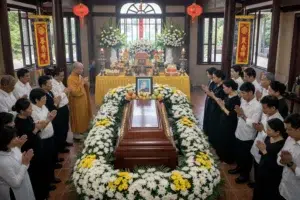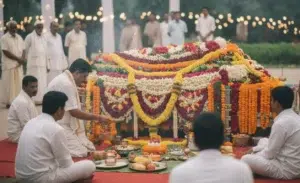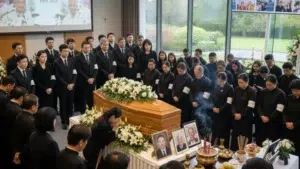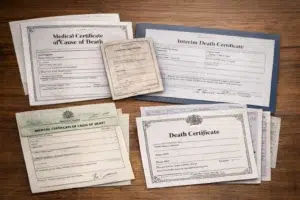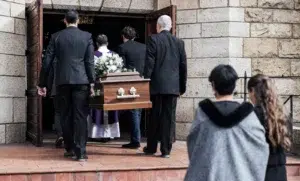A funeral director plays a vital role during one of life’s most sensitive and challenging moments. Their responsibilities extend far beyond organising a ceremony; they provide emotional, administrative, and practical support to families navigating the loss of a loved one. In the UK, funeral directors adhere to strict legal and professional standards, ensuring that every aspect of a funeral is handled with care, dignity, and respect.
1. Providing Guidance and Emotional Support
When a loved one passes away, families often find themselves overwhelmed by grief and the practicalities that follow. Funeral directors offer compassionate guidance throughout this process. They help families understand their options, from the type of funeral service to memorial choices, while ensuring that cultural, religious, and personal wishes are respected.
At Gooding Funeral Services, for example, the team emphasises personalised support, helping families make informed decisions without pressure, and ensuring that every choice honours the memory of the deceased.
2. Legal and Administrative Responsibilities
Funeral directors in the UK are responsible for handling essential legal requirements. This includes registering a death, obtaining necessary certificates, and liaising with authorities to comply with local regulations. They also manage paperwork associated with cremation or burial arrangements, ensuring that everything is completed accurately and on time.
By managing these critical administrative tasks, funeral directors relieve families of complex bureaucratic processes, allowing them to focus on grieving and remembrance.
3. Planning and Coordinating the Funeral Service
A key part of a funeral director’s role is to organise the funeral service itself. This includes coordinating with cemeteries, crematoriums, clergy, celebrants, and other service providers. They oversee logistics such as transportation, arranging flowers, preparing obituaries, and scheduling timings to ensure the ceremony runs smoothly.
Gooding Funeral Services, for instance, works closely with local communities and service providers, tailoring each funeral to reflect the personality and wishes of the deceased while maintaining dignity throughout.
4. Caring for the Deceased
Funeral directors are also responsible for preparing and caring for the deceased before the service. This can include embalming, dressing, and cosmetology, ensuring that loved ones are presented in a respectful and comforting manner. They may also provide guidance on coffin selection, urns, or other memorial items, helping families make choices that align with their preferences and values.
5. Offering Pre-planning and Advice
Many funeral directors provide pre-planning services, allowing individuals to arrange their own funeral in advance. This includes guidance on costs, service options, and legal documentation. Pre-planning helps reduce stress on families and ensures that personal wishes are respected.
Companies like Gooding offer pre-arranged funeral services, supporting families in creating plans that are tailored and financially transparent, so that loved ones are not burdened later.
6. Supporting Grieving Families
Beyond the immediate funeral arrangements, funeral directors can offer ongoing support and guidance for grieving families. They may provide access to bereavement counselling, support groups, or resources for coping with loss. This holistic approach recognises that grief extends beyond the ceremony and that emotional support is a crucial part of a funeral director’s role.
Conclusion
The role of a funeral director in the UK is multifaceted, combining compassion, professionalism, and attention to detail. From managing legal responsibilities and planning ceremonies to providing emotional support, funeral directors ensure that families can honour their loved ones with dignity and care.Gooding Funeral Services exemplifies this approach, offering expert guidance and compassionate support to families across the UK, ensuring that every funeral is handled with the respect it deserves.
Pages You Might Like:
Funeral directors UK, Funeral services UK, Funeral Services in Leeds, Funeral directors Leeds, Funeral Directors in Bradford, Funeral Directors Bradford, Funeral Directors Manchester, Funeral Directors Huddersfield, Funeral Services in Doncaster, Asian Funeral Services, Hindu Funeral Services, Sikh Funeral Services, Caribbean Funeral Service


